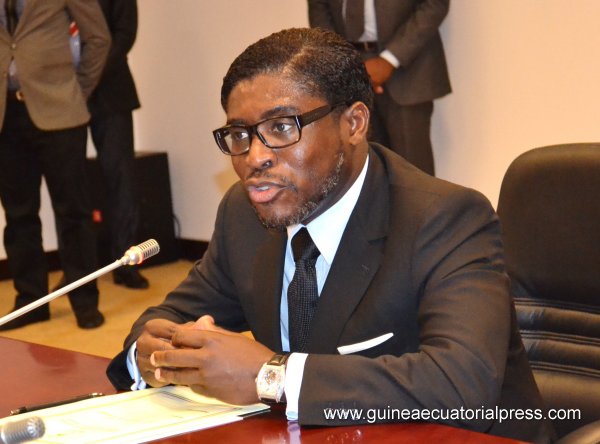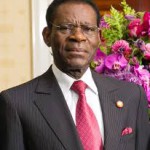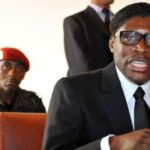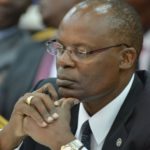The son of Equatorial Guinea’s President is on trial in France for splurging on a Parisian mansion, a private jet and a fleet of luxury cars using tens of millions of dollars he allegedly looted from his country.
Teodoro Nguema Obiang Mangue’s trial on charges of embezzlement of public funds and money laundering started in Paris on Monday and is expected to last several weeks.
Prosecutors say he’s amassed a fortune, including an opulent mansion near the Champs-Elysees, along with Bugattis, Ferraris and an Aston Martin. He also allegedly spent millions of dollars on pricey European art and jewelry.
He also owns a yacht named Ice, which reportedly costs about $800,000 a month to maintain
Obiang, 47, serves as his father’s vice president and earns about $100,000 a year in that role, according to his lawyer, Emmanuel Marsigny.
In addition to his government job, the lawyer said, Obiang has income from his various private businesses in the central African nation.
“He is accused of money laundering for investing or spending funds in France that would come from offenses committed in Equatorial Guinea,” his lawyer told CNN.
Marsigny said his client, who has not appeared in court so far, has diplomatic immunity.
Secretive nation
The trial of the President’s son is being watched closely in Africa, where corruption is a major problem among government officials.
Obiang’s father, President Teodoro Obiang Nguema Mbasogo, seized power in a 1979 coup and is the longest-serving head of state on the continent.
Equatorial Guinea is a former Spanish colony rich in oil, but a majority of its population lives in poverty.
The country has mostly stayed out of the headlines by maintaining a tight lid on information. The trial gives an insight into the financial workings of one of the most secretive nations in the world. So much so, that for several years Transparency International described Equatorial Guinea as ‘too opaque to rank’, saying it could not get enough data on it for the global corruption index.
Why France?
Obiang amassed his wealth in France, but Marsigny said it has no jurisdiction to charge him for alleged money laundering in Equatorial Guinea. He said the case is an example of French courts intervening in the affairs of a sovereign nation.
His client, he said, acquired his personal fortune legally, and his financial dealings were not illegal in Equatorial Guinea.
“Equatorial Guinea examined the proofs presented by the French prosecutor and ruled on June 12 that no offense had been committed,” Marsigny said.
“The vice president’s defense contests the right of French justice to substitute Equatorial Guinean justice, to judge offenses committed in Equatorial Guinea while applying French law.”
Obiang has always declared his taxes in France, and has a bank account under his name in Equatorial Guinea, according to Marsigny. He said he has no offshore accounts.
10 years in the making
Efforts to charge Obiang with money laundering started nearly a decade ago when Sherpa, a group that says it protects and defends victims of economic crimes, filed a complaint along with several nongovernmental organizations accusing him of using public money to buy property in France, a favored destination for African leaders.
After France’s highest court said it had jurisdiction to try the case, Obiang’s lawyers asked the International Court of Justice in The Hague to intervene. In December, the UN court gave the Freench court a go-ahead, but ruled that it should treat the Paris mansion as Equatorial Guinea’s diplomatic mission.
US corruption settlement
France is not alone.
In 2014, the United States agreed to a settlement following allegations that Obiang used money plundered from his country to amass assets such as a Malibu mansion, a private jet and Michael Jackson memorabilia.
Under the settlement, the Justice Department allowed Obiang to keep a Gulfstream jet and most of his Michael Jackson collection, including the white glove from Jackson’s “Bad” world tour. Those assets were not in the United States, the Justice Department said, but they could be subject to seizure if they ever come to the country.
At the time, Obiang disputed the US allegations and said the assets, including a $30 million Malibu mansion, were purchased with proceeds from his businesses. He admitted no wrongdoing in the settlement.
As part of the settlement, Obiand had to sell the Malibu mansion, a Ferrari and pay $20 million to a charity that benefits the people of Equatorial Guinea.
Under the settlement, the US government kept about $10 million.








